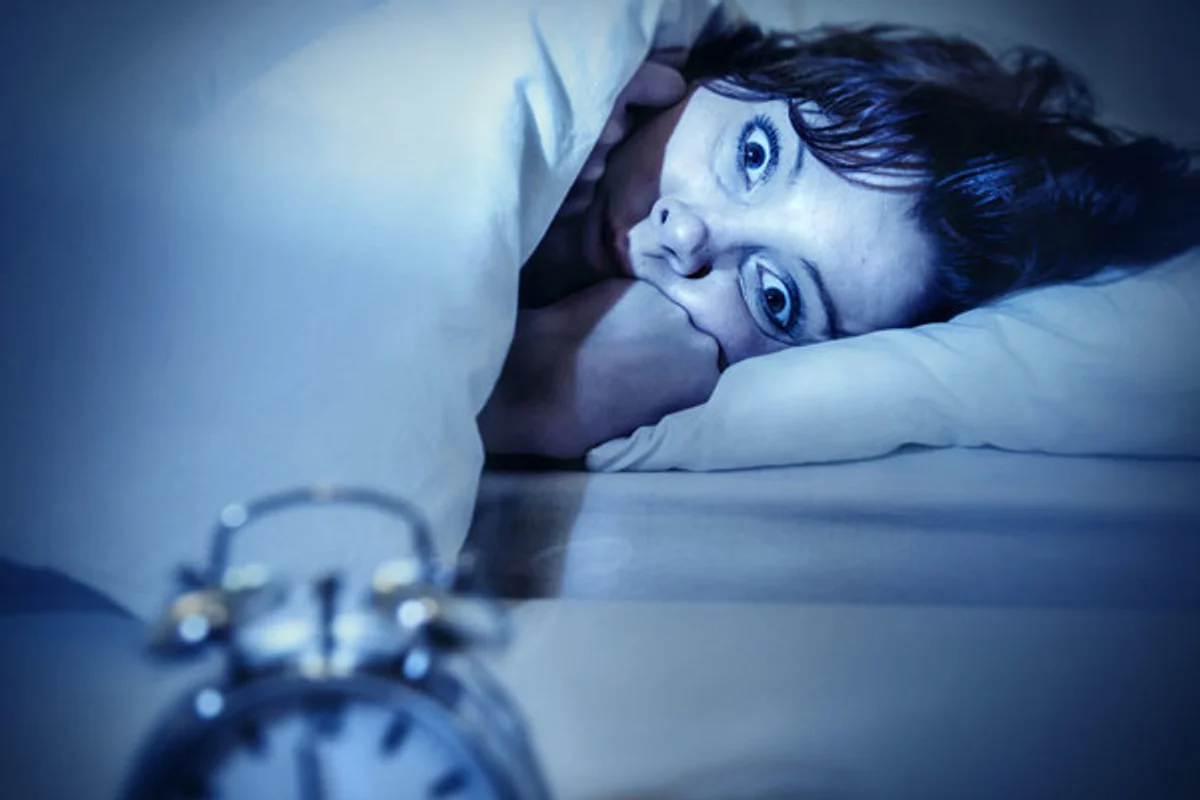Women generally have more difficulty sleeping than men. We may blame it on our hormones, our partner's snoring, our kids, our dogs, our overloaded minds or any number of other issues, but the fact is, lack of sleep can make us tired and grouchy. So what's a woman to do?
Perhaps surprisingly, we should start by getting out of bed, says Steve Orma, PsyD, a former insomnia sufferer and clinical psychologist specializing in anxiety and insomnia. Orma's book, Stop Worrying and Go to Sleep: How to Put Insomnia to Bed for Good, offers plenty of tips on restful sleep. Here are a few on avoiding those endless hours of tossing and turning:
1. Don't stay in bed tossing and turning. If you don't fall asleep within 20 to 30 minutes, get out of bed. You don't want to associate feeling anxious and restless with the bed itself because that can lead to insomnia. Go into a different room and do something that will help you nod off, like listening to relaxing music, knitting, drawing or reading a calming book. Don't do anything that could stimulate your senses. Avoid exercising, going on the computer, watching TV (unless it's a show that will put you to sleep) or reading a thriller.
2. As soon as you're sleepy, get back in bed. Don't fall asleep on the sofa or you may be grouchy AND sore the next day. But don't go back to bed too soon, either! People start worrying that it's getting late, so they get back in bed when they're still wide awake. It's better to wait until you're really sleepy, even if you only get a few hours of sleep, Orma says. The next night, you'll be more likely to fall asleep because you're tired and your body will try to make up for the lack of sleep, so you'll get good, restorative sleep.
3. When you get out of bed during the night, do a mind dump. If you're anxious and your mind is racing, dump those worries and concerns on a piece of paper. Orma doesn't recommend journaling during the night, because then you start analyzing your worries. Just list what's on your mind. That should help you feel calmer. Then leave the list and go do something relaxing. The next day, start addressing your concerns. Resolve each issue, one by one. It may take days or weeks, but you're cleaning your hard drive, Orma says, so those things don't weigh on you at night.
4. Avoid poor sleep behaviors. People who aren't sleeping well often adopt poor sleep habits. They may start napping or sleeping in over the weekend. In the short term, they'll feel better because they got some sleep, but these habits can worsen their sleep and could lead to insomnia. If you're sleeping during the day or excessively on the weekend, you're taking pressure away from the body needing to sleep at night. People think "Sunday night insomnia" occurs because they're dreading going to work on Monday, but it's usually because they've slept in over the weekend and now they're not tired.
5. Go to sleep when you're sleepy and keep a regular wakeup time. Don't worry if you find yourself getting sleepy at 9 or 9:30. Go to bed and then wake up when you're rested. Try to keep a consistent wake-up time, including weekends. If you have to wake early for work during the week, your body will be trained to get up early—even on weekends. If you sleep in for three or four extra hours, it can throw your sleep schedule off-kilter. Waking at the same time every day places pressure on your body to fall asleep at night.
6. Get exposure to sunlight during the day, if you can. Get outside and enjoy some sunlight, ideally without sunscreen and sunglasses for a brief time. Even if the sun is blocked by clouds, you can get some light. The sunlight lowers your release of melatonin, a hormone that makes you sleep, so you'll feel more alert during the day. Outdoor exercise heightens the effect. At night, when you turn off or dim your lights, your body releases melatonin to help make you sleepy. If you can't get enough sunlight, consider using a light therapy device, Orma suggests. Turn it on in the morning while you work to start your body clock. That will help you later when you go into nighttime mode.
7. Avoid bright lights near bedtime. In addition to dimming the room lights in the evening, avoid the lights of your TV, computer, tablet or smartphone for at least an hour before going to sleep. If you have a lighted bedside clock, turn it around so you can't see it (it'll only torment you). Lights slow release of melatonin—not to mention that whatever you're watching or reading online can cause mental stimulation that may make you toss and turn when you turn off the lights.







